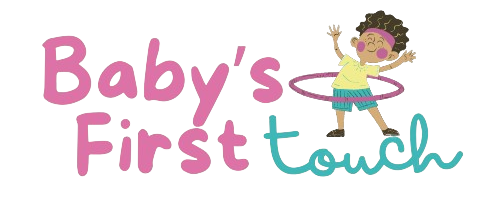Table of Contents
- What Exactly is Zinc, Anyway?
- Why Zinc is a Non-Negotiable for Growing Kids: The Core Benefits
- Is My Child Getting Enough Zinc? Spotting the Signs of Deficiency
- How Much Zinc Do Kids Actually Need?
- Boosting Your Child’s Zinc Intake: The Food-First Approach
- What About Zinc Supplements for Kids?
- Zinc and Common Childhood Concerns
- Practical Tips for Parents: Making Zinc Count!
- The Takeaway: Zinc is Small but Mighty!
The Mighty Mineral: Understanding the Unsung Importance of Zinc for Kids
As parents, we juggle a million things – school runs, bedtime stories, scraped knees, and ensuring our little ones are eating their greens (or at least *some* colour!). We know calcium builds strong bones and vitamin C fights off sniffles. But have you ever stopped to think about zinc? This often-overlooked mineral might not grab the headlines like Vitamin D or Iron, but trust us, it’s a tiny powerhouse crucial for your child’s health, growth, and overall well-being. Think of it as the unsung hero in the complex orchestra of childhood development.
Maybe you’ve heard whispers about zinc for kids in relation to immunity, or perhaps it’s completely new territory. Either way, you’re in the right place! We’re about to dive deep into the world of zinc, uncovering why it’s so vital for growing bodies and minds, how to spot potential deficiency, and most importantly, how to ensure your child gets enough of this mighty mineral. Let’s unlock the secrets of zinc together!
What Exactly is Zinc, Anyway?
Before we explore its superpowers, let’s get acquainted. Zinc is an essential trace mineral. ‘Essential’ means our bodies can’t produce it, so we absolutely *must* get it from our diet. ‘Trace’ means we only need small amounts, but don’t let that fool you – those small amounts pack a mighty punch!
Zinc is involved in hundreds (yes, *hundreds*!) of enzymatic reactions within the body. It’s like a master key, unlocking critical processes that keep everything running smoothly. From building DNA to healing a cut, zinc is working tirelessly behind the scenes.
Why Zinc is a Non-Negotiable for Growing Kids: The Core Benefits
Okay, let’s get to the juicy stuff. Why should zinc for kids be on every parent’s radar? Its roles are incredibly diverse and impact virtually every aspect of childhood development.
Fueling Growth Spurts & Development
Remember those enzymatic reactions we mentioned? Many of them are directly involved in making new cells and proteins – the very building blocks of growth! Zinc is indispensable for:
- DNA Synthesis: The blueprint for every cell in the body requires zinc.
- Cell Division: Kids are growing constantly, which means their cells are dividing rapidly. Zinc is essential for this process.
- Protein Production: From muscles to enzymes, proteins are vital, and zinc helps build them.
Adequate zinc intake is directly linked to healthy height and weight gain during infancy, childhood, and adolescence. If you’re tracking your child’s progress on those growth charts, zinc is a key player helping them reach their potential.

Building an Ironclad Immune System
Tired of constant colds and bugs cycling through your household? Zinc might be part of the defence strategy! It’s a cornerstone of a robust immune system. Here’s how:
- Immune Cell Development & Function: Zinc is crucial for the proper development and function of immune warriors like T-cells and B-cells, which identify and destroy pathogens.
- Fighting Infections: Studies suggest adequate zinc levels can help reduce the severity and duration of common infections, including the common cold and episodes of diarrhea (especially in vulnerable populations).
- Reducing Inflammation: Zinc helps regulate the body’s inflammatory response, preventing it from going into overdrive.
Think of zinc as training and equipping your child’s internal army to effectively fight off invaders. A deficiency can leave their defences weakened.
Boosting Brain Power & Learning
Zinc’s influence extends deep into the developing brain. It plays a critical role in:
- Neurotransmitter Function: Zinc influences the chemicals that transmit signals between brain cells, impacting mood, learning, and memory.
- Cognitive Development: Research links adequate zinc status with better cognitive performance, attention spans, and problem-solving skills in children.
- Memory Formation: The processes involved in creating and storing memories rely, in part, on zinc.
While many factors contribute to brain health, ensuring sufficient zinc intake provides essential support for your child’s learning journey and cognitive function.
Speeding Up Wound Healing & Promoting Healthy Skin
Kids and scraped knees go hand-in-hand! Zinc plays a vital role in repairing tissues:
- Cell Regeneration: It’s needed to create the new skin cells required to close a wound.
- Collagen Synthesis: Zinc helps produce collagen, a key protein for skin structure and repair.
- Immune Function at the Wound Site: It helps control inflammation and fight potential infection during the healing process.
Beyond cuts and scrapes, zinc also contributes to overall skin health and may play a role in managing conditions like acne (more relevant for teens) and potentially eczema, although more research is needed.
Sharpening the Senses: Taste and Smell
Is your child a picky eater? While many factors are involved, zinc deficiency can actually blunt the senses of taste and smell. Zinc is a component of gustin, a protein essential for taste perception. When taste and smell are diminished, food becomes less appealing, potentially leading to poor appetite and further nutrient deficiencies – a frustrating cycle for parents!
Supporting Healthy Vision
Zinc works alongside Vitamin A to support eye health. It’s involved in transporting Vitamin A to the retina, which is necessary for producing melanin, a protective pigment in the eyes. Adequate levels contribute to maintaining good vision.
Is My Child Getting Enough Zinc? Spotting the Signs of Deficiency
Zinc deficiency in children is a global health concern, particularly in regions with poor dietary diversity. While severe deficiency is less common in developed countries, mild or moderate deficiency can still occur, especially in certain groups.
Who’s Most at Risk?
- Picky Eaters: Children with very limited diets may not consume enough zinc-rich foods.
- Vegetarians/Vegans: Plant-based sources of zinc are less bioavailable (harder for the body to absorb) than animal sources. Careful planning is needed.
- Children with Malabsorption Issues: Conditions like Crohn’s disease, celiac disease, or chronic diarrhea can impair zinc absorption.
- Infants Exclusively Breastfed Beyond 6 Months (without complementary foods): Breast milk zinc levels decrease over time, so introducing zinc-rich foods is crucial around 6 months.
- Adolescents: Rapid growth spurts increase zinc requirements.
Potential Signs of Zinc Deficiency in Kids:
It’s important to note that these signs can be caused by many other things, and a deficiency needs to be diagnosed by a healthcare professional. However, being aware of potential indicators is helpful:
- Slowed Growth: Not meeting growth milestones (height or weight).
- Frequent Infections: Constantly catching colds, flu, or other bugs.
- Poor Appetite: Lack of interest in food, potentially linked to altered taste/smell.
- Slow Wound Healing: Cuts and scrapes take longer than usual to heal.
- Diarrhea: Persistent or frequent bouts of diarrhea.
- Skin Problems: Rashes, acne (in older kids/teens), or other skin irritations.
- Hair Loss: Thinning hair or unexplained hair loss.
- Changes in Taste or Smell: Food doesn’t taste or smell right.
- Learning/Behavioral Issues: Difficulty concentrating or potential mood changes (though many factors contribute here).
If you suspect a zinc deficiency, please consult your pediatrician. They can assess your child’s diet, growth, and overall health, and order tests if necessary. Self-diagnosing or supplementing without guidance is not recommended.
How Much Zinc Do Kids Actually Need?
Zinc needs vary depending on age. Here are the Recommended Dietary Allowances (RDAs) established by the National Institutes of Health (NIH) in the US. Remember, AI stands for Adequate Intake, used when not enough evidence exists for an RDA.
- 0 to 6 months: 2 mg/day (AI)
- 7 to 12 months: 3 mg/day (RDA)
- 1 to 3 years: 3 mg/day (RDA)
- 4 to 8 years: 5 mg/day (RDA)
- 9 to 13 years: 8 mg/day (RDA)
- 14 to 18 years (boys): 11 mg/day (RDA)
- 14 to 18 years (girls): 9 mg/day (RDA)
These amounts might seem small, but achieving them consistently through diet requires some attention, especially for picky eaters or those on restricted diets.

Boosting Your Child’s Zinc Intake: The Food-First Approach
The best way to ensure your child gets enough zinc is through a balanced and varied diet. Luckily, zinc is found in a range of foods!
Top Zinc-Rich Foods for Kids:
Here are some excellent sources, including kid-friendly options:
- Red Meat: Beef, lamb, and pork are zinc powerhouses. Even small portions can contribute significantly. (e.g., meatballs, lean mince in bolognese).
- Poultry: Chicken (especially dark meat like thighs and legs) and turkey are good sources.
- Shellfish: Oysters are the *richest* source, but not typically kid-friendly (and need caution regarding sourcing/allergies). Crab and lobster are also high.
- Legumes: Chickpeas (hummus!), lentils (in soups or stews), and beans (kidney beans, black beans in chili or wraps) are great plant-based sources.
- Nuts & Seeds: Pumpkin seeds, cashews, hemp seeds, and almonds are packed with zinc. Offer nut butters (check for allergies) or sprinkle seeds on yogurt or oatmeal. *Always supervise young children with whole nuts/seeds due to choking hazards.*
- Dairy Products: Milk, yogurt, and cheese provide zinc, along with calcium and vitamin D.
- Eggs: A versatile and nutrient-rich option.
- Whole Grains: Oats, quinoa, and brown rice contain zinc.
- Fortified Foods: Many breakfast cereals are fortified with zinc – check the labels!
Understanding Bioavailability: Animal vs. Plant Sources
It’s important to know that zinc from animal sources (meat, poultry, dairy) is generally absorbed more easily by the body than zinc from plant sources (legumes, grains, nuts, seeds). This is because plant foods often contain compounds called phytates, which can bind to zinc and inhibit its absorption.
Don’t worry, this doesn’t mean plant-based zinc isn’t valuable! You can enhance absorption by:
- Soaking & Sprouting: Soaking beans, grains, and seeds before cooking can reduce phytate levels.
- Fermenting: Fermented foods like sourdough bread have lower phytate content.
- Combining with Vitamin C: Eating zinc-rich plant foods alongside vitamin C-rich foods (like fruits and vegetables) might slightly improve absorption.
- Including Animal Protein: Even small amounts of animal protein in a meal can enhance zinc absorption from plant sources.
Kid-Friendly Zinc-Boosting Meal & Snack Ideas:
- Breakfast: Fortified cereal with milk; oatmeal topped with pumpkin seeds and berries; scrambled eggs.
- Lunch: Leftover chili with beans and lean ground beef; hummus and veggie wrap; chicken strips (baked, not fried!) with yogurt dip; lentil soup.
- Dinner: Spaghetti bolognese with lean mince; chicken stir-fry with cashews; baked beans on wholewheat toast; shepherd’s pie with lamb mince.
- Snacks: Yogurt; cheese sticks; a small handful of cashews (age-appropriate); pumpkin seeds; hummus with veggie sticks; fortified crackers.

What About Zinc Supplements for Kids?
With all this talk about zinc’s importance, you might wonder about supplements. While readily available, zinc supplements for kids should generally only be used under the guidance of a healthcare professional.
When Might Supplements Be Considered?
- Diagnosed Deficiency: If blood tests confirm low zinc levels.
- Specific Medical Conditions: Certain conditions affecting nutrient absorption may necessitate supplementation.
- Highly Restricted Diets: Such as poorly planned vegetarian/vegan diets or multiple food allergies, where meeting needs through food alone is challenging.
- Therapeutic Use: For specific conditions like acute diarrhea (as recommended by WHO/UNICEF in certain contexts) or sometimes Wilson’s disease.
The Importance of Caution: Why You MUST Consult a Doctor
Giving your child zinc supplements without a diagnosed need or medical supervision can be risky:
- Toxicity: Too much zinc can cause nausea, vomiting, stomach cramps, diarrhea, and headaches.
- Copper Deficiency: High zinc intake over time can interfere with the absorption of another essential mineral, copper, leading to copper deficiency and potential neurological problems or anemia.
- Interactions: Zinc supplements can interact with certain medications, including antibiotics and diuretics.
Bottom line: Always prioritize getting zinc from food. If you have concerns about your child’s intake or suspect a deficiency, talk to your pediatrician or a registered dietitian. They can assess the situation and recommend the best course of action, which may or may not involve supplementation at a safe, appropriate dose.
Zinc and Common Childhood Concerns
Zinc’s wide-ranging roles mean it often comes up in discussions about specific childhood health issues.
- Zinc and Colds: Some studies suggest that zinc lozenges (for older children who won’t choke) taken at the *very start* of a cold might slightly reduce its duration. However, evidence is mixed, and nasal zinc sprays are NOT recommended due to potential side effects (like loss of smell). Diet remains the best preventative strategy.
- Zinc and Diarrhea: In developing countries where zinc deficiency is common, the World Health Organization (WHO) recommends zinc supplementation alongside oral rehydration salts for children with acute diarrhea. It’s proven to reduce the duration and severity of episodes. Consult your doctor about its appropriateness in your setting.
- Zinc and ADHD: Some research has explored a potential link between lower zinc levels and ADHD symptoms. While some studies show potential benefits from supplementation *in deficient children*, zinc is NOT a cure for ADHD, and more research is needed. It should never replace standard ADHD treatments.
- Zinc and Picky Eating: As mentioned, deficiency can blunt taste, worsening picky eating. Ensuring adequate zinc through fortified foods or appealing zinc-rich options might help improve appetite, but addressing picky eating often requires broader behavioral strategies too.
Practical Tips for Parents: Making Zinc Count!
Navigating nutrition can feel overwhelming, but ensuring adequate zinc doesn’t have to be complicated. Here are some actionable takeaways:
- Focus on Variety: Offer a wide range of foods daily, including good sources of zinc like lean meats, poultry, beans, nuts/seeds (appropriately prepared), and dairy.
- Read Labels: Check breakfast cereals and snack bars for zinc fortification – it can be an easy way to boost intake.
- Combine Foods Smartly: Remember that animal protein enhances plant-based zinc absorption. Add a little meat to bean dishes, or serve plant sources alongside Vitamin C-rich foods.
- Make Mealtime Positive: Avoid pressure around eating. Offer healthy options and let your child decide how much to eat. Involve kids in meal prep – they’re more likely to eat what they help make!
- Address Picky Eating Holistically: If picky eating is a major concern, seek strategies beyond just focusing on one nutrient. Patience, repeated exposure, and making food fun are key.
- Don’t Guess, Assess: If you’re genuinely concerned about your child’s zinc intake or see potential deficiency signs, talk to your pediatrician or a registered dietitian. Avoid unnecessary supplementation.

The Takeaway: Zinc is Small but Mighty!
From fueling those incredible growth spurts and building a fortress-like immune system to sharpening young minds and healing tiny scrapes, zinc is undeniably crucial for our children’s health and development. It truly is a mighty mineral working tirelessly behind the scenes.
While deficiency is a real concern, the good news is that zinc is present in many common foods. By focusing on a varied, balanced diet rich in lean proteins, legumes, nuts, seeds, dairy, and fortified grains, you can provide the zinc your child needs to thrive. Remember the food-first approach, be mindful of bioavailability, and don’t hesitate to seek professional guidance if you have concerns.
Supporting your child’s nutritional needs is one of the most important things you do every day. By understanding the vital role of minerals like zinc, you’re empowered to make informed choices that contribute to their bright and healthy future. Here’s to happy, healthy, zinc-powered kids!



